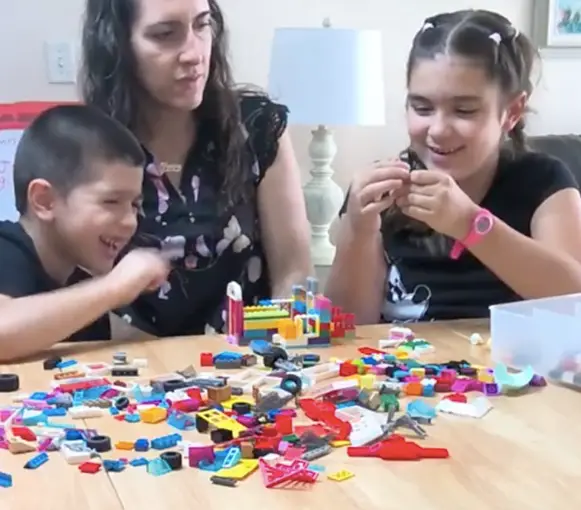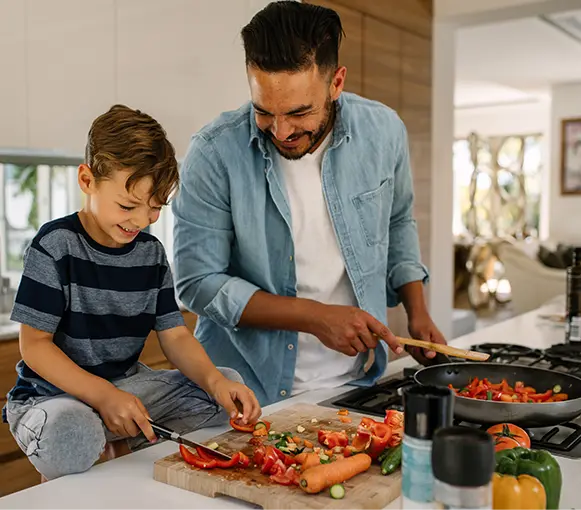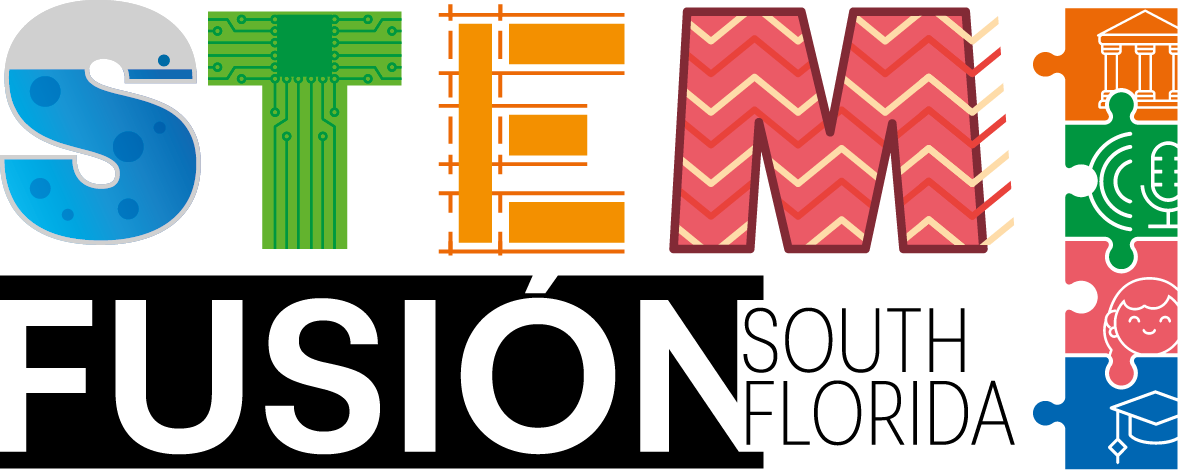
Our social interactions with family members shape the way we see ourselves—our interests, our values, our goals, and even how we make sense of the world around us. This includes how we see our likeness with STEM professionals or hobbyists.
Each of the Talking Science projects below attends to various facets of how we develop our self-perceptions in relation to members of STEM communities—in other words, the development of our STEM identities.

The Talking Science with Family project focuses on understanding how best to support family science talk and other forms of engagement that foster and sustain Latine youth’s STEM identities. Learning alongside caregivers, children, and college STEM students, we discover the ways science talk happens during activities, like car trips, baking, building, playing video games, watching videos, and other everyday family experiences. By centering the strengths of family culture and knowledge, we highlight what we call, "family-centric STEM identity development".

Family talk about science is often prompted by children’s media consumption habits. Through Talking Science with Media our team closely examines children’s video watching and podcast listening habits to understand how those experiences prompt STEM related conversations with family members that can lead to the development of their STEM identities.

We believe all children deserve the experience of enjoyment, discovery, and curiosity that are inextricable from STEM inquiry and fundamental to healthy development. Talking Science in the Kitchen aims to inspire children's STEM interests and build fundamental skills to formulate solutions to global challenges, support social mobility. This endeavor builds on families’ existing co-cooking habits and cultural experiences to create discovery experiences that lead to lifelong STEM hobbies or careers and healthy eating habits.

Innovative and creative possibilities are born when partners with different strengths join to achieve the same goal. The Family STEM Leadership Network brings together out-of-school-time (OST) organizations, children's media producers, and academic institutions with the goal of deepening kids’ STEM identity. STEM Fusión grew out of this cross-sector collaboration. Through STEM Fusión Latino families in South Florida will enjoy a multi-event summer STEM program that breaks the boundaries of where and how informal STEM learning happens.

More and more researchers are discovering the valuable contributions that out-of-school time (OST) experiences make toward children’s STEM identity development—above and beyond their school experiences. To better understand the ways OST experiences inspire youth with diverse experiences to pursue STEM careers, we have partnered with Harvard and the Smithsonian Institute to engage in nationally representative data collection efforts.

When we see ourselves as a STEM person, we open opportunities for lifelong fulfillment through STEM related careers and hobbies.